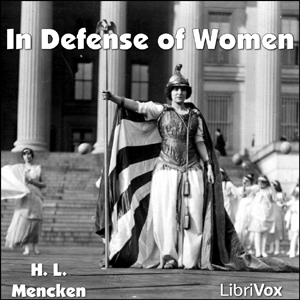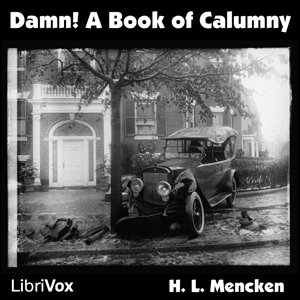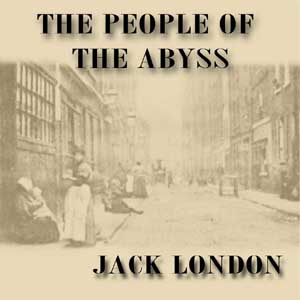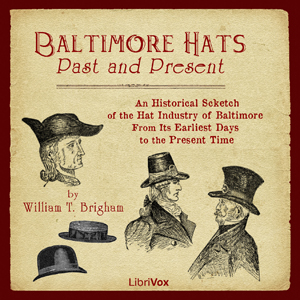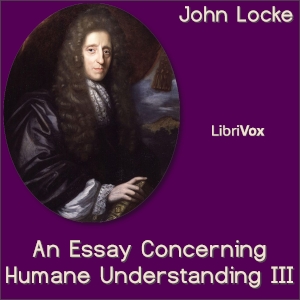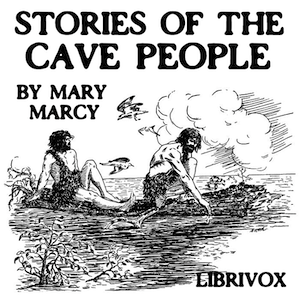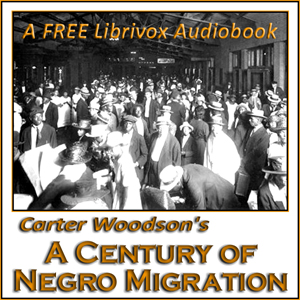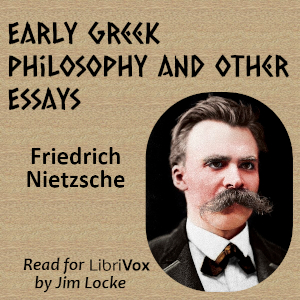In Defense of Women is H. L. Mencken's 1918 book on women and the relationship between the sexes. Some laud the book as progressive while others brand it as reactionary. While Mencken didn't champion women's rights, he described women as wiser in many novel and observable ways, while demeaning average men. According to Mencken's biographer, Fred Hobson: Depending on the position of the reader, he was either a great defender of women's rights or, as a critic labelled him in 1916, 'the greatest misogynist since Schopenhauer','the country's high-priest of woman-haters.' (Summary from wikipedia)
12 episodes
These pages record some of the adventures of the First South Carolina Volunteers, the first slave regiment mustered into the service of the United States during the late civil war. It was, indeed, the first colored regiment of any kind so mustered, except a portion of the troops raised by Major-General Butler at New Orleans. These scarcely belonged to the same class, however, being recruited from the free colored population of that city, a comparatively self-reliant and educated race. (From the text)
14 episodes
Henry Louis "H. L." Mencken (1880 – 1956) was an American journalist, essayist, magazine editor, satirist, acerbic critic of American life and culture, and a student of American English. Known as the "Sage of Baltimore", he is regarded as one of the most influential American writers and prose stylists of the first half of the 20th century. Mencken is perhaps best remembered today for The American Language, a multi-volume study of how the English language is spoken in the United States, and for his satirical reporting on the Scopes trial, which he named the "Monkey" trial."
(Summary by Wikipedia)
5 episodes
P. T. Barnum exposes some of the chief humbugs of the world with his usual entertaining style. He looks at medicine and quacks, ghosts, witchcraft, religious humbugs, money manias, adventurers, personal reminiscences, and much more. (Summary by Barry Eads)
51 episodes
Jack London lived for a time within the grim and grimy world of the East End of London, where half a million people scraped together hardly enough on which to survive. Even if they were able to work, they were paid only enough to allow them a pitiful existence. He grew to know and empathise with these forgotten (or ignored) people as he spoke with them and tasted the workhouse, life on the streets, ... and the food, which was cheap, barely nutritious, and foul.
He writes about his experiences in a fluid and narrative style, making it very clear what he thinks of the social structures which created the Abyss, and of the millionaires who live high on the labours of a people forced to live in squalor. "... The food this managing class eats, the wine it drinks, ... the fine clothes it wears, are challenged by eight million mouths which have never had enough to fill them, and by twice eight million bodies which have never been sufficiently clothed and housed."
(Summary by Peter Yearsley)
27 episodes

Common sense asks for a full investigation of all the evils attending prostitution. In the every-day affairs of life, any man who feels the pressure of a particular evil looks at once for its cause. He may be neither a philosopher nor a logician, and may never have heard of or read any of the luminous treatises which professedly simplify science, yet he knows very well that for every effect there must be some adequate cause, and for this he generally searches diligently till he can find and remove it. But here, in the city of New York, is a population who claim to be as intelligent as any on the Western continent, who have been for years suffering from the effects of a vice in purse and person; who have paid and are paying every year large sums of money on account of it; who witness every day some broken constitution or ruined character resulting from it, and who yet have never thought of seeking out the cause! Is it now too late to enlist your sympathies in the undertaking? Hence we conclude that propriety, expediency, public safety, private interest, and common sense demand an investigation like this now submitted to the reader. (from the Introduction)
63 episodes
“Civilization sinks and swims, but the old facts remain—the sun smiles, knowing well its strength.” Edward Carpenter (1844-1929) wrote his prose poem, Towards Democracy, styled after Walt Whitman’s Leaves of Grass, in a summer burst of creativity. “Early in 1881, no doubt as the culmination and result of struggles and experiences that had been going on, I became conscious that a mass of material was forming within me, imperatively demanding expression . . .” An English intellectual, Carpenter was in rebellion against Victorian prudery. Railing against Industrialization’s dehumanization, he preached a return to a simple life in harmony with Nature. Towards Democracy reads like Beat poetry—wild flowing word associations, moments of insight so clear they hurt, interspersed with pure rant! Included is an essay Carpenter wrote in 1894 explaining his intent and feelings in writing Towards Democracy. - Summary by Sue Anderson
13 episodes
CHAPTER I
HOMES OF THE COLONISTS
When the first settlers landed on American shores, the difficulties in finding or making shelter must have seemed ironical as well as almost unbearable. The colonists found a land magnificent with forest trees of every size and variety, but they had no sawmills, and few saws to cut boards; there was plenty of clay and ample limestone on every side, yet they could have no brick and no mortar; grand boulders of granite and rock were everywhere, yet there was not a single facility for cutting, drawing, or using stone. These homeless men, so sorely in need of immediate shelter, were baffled by pioneer conditions, and had to turn to many poor expedients, and be satisfied with rude covering. In Pennsylvania, New York, Massachusetts, and, possibly, other states, some reverted to an ancient form of shelter: they became cave-dwellers; caves were dug ... (taken from first chapter of the book). Talk about starting from scratch!! Susan Morin
18 episodes
This post-apocalyptic novella tells the story of the downfall of civilisation and mankind following a solar cataclysm in the late 20th century. To survive, the remnants of humanity had to build a new civilization underground in the complete absence of all species except mankind, choosing to base it only on love and beauty, the fine arts and intellectual pursuits.
In view of the sun's current inactivity, this frighteningly prophetic tale might have been written today, saving that the cultural references and the fluid prose might be beyond, if one dares say so, many modern writers.
Tarde was a French sociologist, criminologist and social psychologist. This novella was, as far as I know, his only venture into the writing of fiction, and is heavy with philosophical, sociological, scientific and even political concepts. It is an absorbing and thought-provoking work. (Summary by Ruth Golding)
7 episodes
It is not impossible that some useful information may be conveyed by this book. Should these pages prove of such service, their cost in labor is most cheerfully donated.This volume is composed of a series of articles which appeared in a Trade Journal, covering a period of two years from 1887 to 1889. It must be accepted as but a brief history of an industry long identified with Baltimore.Thanks are due the Librarian of the Maryland Historical Society and Mr. B. R. Sheriff for favors in lending rare and valuable old City directories; also to the many citizens who kindly aided and assisted in the search for needed information.The Author. (from the Preface)
18 episodes
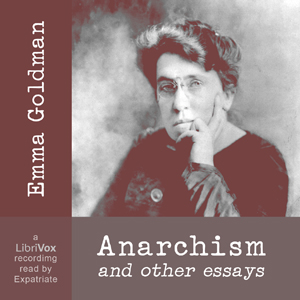
Emma Goldman, the most famous anarchist in American history, shows the whole range of her iconoclastic thought in this collection of essays. Drawing from a wealth of illustrative material, including the examples of fellow anarchists and radicals of her own acquaintance, modern martyrs, dissident playwrights, poets, and authors, etc., she delineates the main themes of her philosophy with incisiveness and evangelical passion. Included among these themes are: a definition of decentralized anarchism itself; the ambiguous morality of direct action; the curse of modern patriotism; the horrors of early twentieth-century prisons; the need for an entirely new kind of education; the relationship of legal marriage to true love; the insidious danger of Puritanical thought within feminism itself; the deadly spread of sex trafficking; the limitations or even undesirability of woman suffrage; and the extraordinary revolutionary potential of modern theatre. Sadly, none of these themes seem obsolete even to a modern reader; every one of them has direct application to twenty-first century society. - Summary by Expatriate
24 episodes
This 1845 publication, written by a prominent reformer of the day, argues against capital punishment from several perspectives, including historical, philosophical and biblical arguments. It is broken into 3 chapters: Expediency, Justice, and Sacred Scriptures (although it has Scripture references peppered throughout). Burleigh frequently references and argues against George B. Cheever, a prominent death penalty advocate of the time."If it shall thus be the means of helping on in a humble way the progress of that humane reform whose principles it advocates; and of hastening, however little, the coming of that time, when the penal statutes of a "christian" and "civilized people," shall have ceased to be written in blood, I shall be richly repaid for the time and labor spent upon this task." (Summary by TriciaG and from the preface)
17 episodes

Olive Schreiner was a South African writer born in 1855 to missionary parents in the Eastern Cape. She is credited with being the first Internationally famous South African Novelist. She was an extraordinary person and was one of the earliest campaigners for women's rights, including the right to equal pay for equal work, saying: "The fact that for equal work equally well performed by a man and by a woman it is ordained that the woman on the ground of her sex alone shall receive a less recompense is the nearest approach to a willful and unqualified "wrong" in the whole relation of woman to society today". She opposed racism of all kinds whether against the Boers or Black People and she was also a pacifist and anti-war campaigner.
She was a vociferous critic of British Imperialism in South Africa and of Cecil Rhodes and his policies while prime minister of the Cape. As a result of her public support for the Boers, all her manuscripts and her house were burned by the British during the Anglo-Boer War and she was interned in a concentration camp for several years.
Her most well known book is "The Story of an African Farm" from 1883, in which her own free thinking and progressive views on equality, sexuality and marriage are explored. It became a best seller in Europe and The United States, praised by feminists for portraying a strong heroine in control of her own destiny. The book was originally published under a pseudonym and it was only eight years later with the publication of the second edition that she was able to use her own name.
In 1911 she published "Women and Labour" after having partly reconstructed it, as this was one of the manuscripts that had been destroyed. The book was immensely influential to the women's emancipation movement in England and The United States and is often referred to as the "bible" of the Women's Movement. One of the essays from that book, "Woman and War" was published as a separate booklet in 1914.
Olive Schreiner died in 1920.
- Summary by Noel Badrian
3 episodes
Famed American humorist Washington Irving published a series of short stories telling of his adventures traveling from America to England. This volume contains some of his observations about that trip, including his impressions of the English countryside, the differences between the wealthy and the poor, rural customs, and other aspects of British culture. During a visit to the library located in the depths of Westminster Abbey, Irving muses on the issue of why some examples of English literature stand the test of time, while others are lost to history. The collection concludes with Irving's memories of his visit to Stratford-on-Avon, the home of William Shakespeare, and the nearby communities that influenced some of Shakespeare's work. ( Greg Giordano)
6 episodes
"There may seem to be a disappointing lack of prophesy in a book avowedly dealing with the future; but since I believe the women’s movement to be a seeking for knowledge and good, to show what is reasonable and good in the movement is to show what will persist and triumph. Through all our faults and mistakes, we women are aiming at better understanding and co-operation with men, and a better adaptation to one another of conditions and persons. We are having to hammer out for ourselves the right principles of government. We can take them ready-made from no man. Doubtless we shall flounder considerably, as men have done—and do. But there is little fear that in the long-run the best minds of men and women will not have a common principle." (From the Introduction)
17 episodes
Drugging a Nation is a journalistic reveal of the extent to which the British Empire was culpable in the dissemination and subsequent near total addiction to opium of the Chinese people in the nineteenth century. So weak did it make China, that is was invaded multiple times, often by the British Empire itself looking to make its treaty ports stronger, but by other world powers too. In the end, this resulted in the complete collapse of the empire. The book describes in detail the extent to which opium had taken over the lives of the ordinary Chinese person and how it worked. (Summary by the author)
9 episodes
An explanation of and a completed guide for the use of the Stanford revision and the Simon Binford intelligence test - Summary by the soloist
21 episodes

Swedenborg, Emanuel, 1688-1772, was born in Stockholm, Sweden and died in London, England. He was a voluminous writer of scientific treatises as well as prophetic works such as Archana Caelestia and The Divine Providence. He said he had encountered supranational agencies and communicated with angels. This is a recording of the 1849 translation of his 1743 book The Soul or Rational Psychology (Regnum Animale, Pars Septima De Anima) Latin. He took his cue from Aristotle's De Anima.
A few quotes
It has been shown above that the harmonies themselves are innate with us, or that we perceive them without a teacher; as the sweetnesses of taste and smell, the symmetries of sound, the excellencies and beauties of nature; in a word, the very order of things or the harmony of modes, forces, substances, and forms. Thence also we may perceive the very truths of things, for these correspond to the order itself in nature; and this is the reason why order is called "the transcendental truth."
In order that the human intellect may exist, it is necessary that the truths themselves be variegated and as it were modified by things mendacious, or true things with false, good with evil.
There are as many worlds as there are terrestrial societies, and there are as many heavens as there are celestial societies. The love of society is both natural and acquired, for to live alone or to live without society is not to live, for whatever is one's own is not known as one's own except from others, or relatively.
When we strive for and desire what we love, and yet impossibilities interfere with our attaining our end, we call this state of desire hope, and it seems to be in the will viewed as an endeavour which these obstacles are preventing from coming forth into act and motion. Thus hope is not an affection of the mind, but of its will. For the will always endeavours to act, but so long as it is resisted does not act. Meanwhile it is affected by a certain hope, so that it remains balanced between action and inaction. Despair exists when we cut off hope; then also when, in the end itself, love and ambition, that is, the life and ardour of the mind, collapse and are as it were extinguished.
There is a liberty of thinking and a liberty of acting; and in the middle between these two there is as it were the liberty of choosing , in which properly free will consists; and that our mind is not capable of ruling whether the objects of the senses and their exciting influences, both from the body and the world, shall flow in or not, but it is capable of choosing whether these sensations and excitements shall flow out and be determined into act."
This third edition of the 1849 translation was published in 1914. Johann Friedrich Immanuel Tafel, 1796-1863 devoted himself to translating Swedenborg into German, and Frank Sewall, 1837-1915 into English. Sewall included a long introduction and three appendixes to Swedenborg's work. The introduction is included in this reading but the appendixes have been omitted.
49 episodes
Subtitled "An Account of Negro Citizenship in the American Democracy", we are presented an in-depth and essentially non-opinionated open view of race relations as they existed in the U.S. in 1908, more than 40 years following the end of the Civil War.The book is in three parts: The Negro in the South; The Negro in the North; and the Negro in the Nation. We are presented both rural and urban points of view, struggles for survival, varying district relationships, the effect of lynching, power struggles, and political repercussions, among many other topics. - Summary by Roger Melin
29 episodes
People learn from other people, and races have forever learned from other races. Herein we are treated to an in-depth understanding of categorized social characteristics of the Native American peoples, primarily those of the western U.S. as they existed at the time of book publication (1908). 'In dealing with [the Native Americans] as a race, a people, therefore, I do as I would with my own race, I take what to me seem to be racial characteristics, or in other words, the things that are manifested in the lives of the best men and women, and which seem to represent their habitual aims, ambitions, and desires.' - Summary by Roger Melin & book foreword
29 episodes
Before welfare or rehab, what happened to those unfortunates who lost their way, fell through the cracks, were cast off by society? Men such as Andress Floyd and his wife Lillian stepped up. In 1908, the philanthropists converted a mansion in New Jersey into a refuge for homeless men and during the more than 30 years of its operation, more than 100,000 men stayed there until they were able to get back on their feet. In this volume, Floyd has collected 13 diverse true tales of what brought some of the residents to seek succor and enlightenment at the Self-Mastery Colony. - Summary by Lynne Thompson
14 episodes
This is another of the popular books that Lafcadio Hearn wrote on various Japanese subjects. The first part "Stories From Strange Books" is a collection of Japanese tales about ghosts and strange occurrences. In the second part "Japanese Studies", Hearn discourses on cicadae, girl's names, and Japanese songs. The third part "Fantasies" are stories and essays on various topics written by Hearn himself. - Summary by Availle
DPLs for this project were ChuckW and Isana.
19 episodes
Written over a century ago, this comprehensive book offers insight into the methods used (still to this day, in spite of modern computers) to research and compile a family history. As stated in the preface of the book, "Strong emphasis is laid upon the importance of employing the historical method..." which is sorely lacking in today's computerized compilations. - Summary by Roger Melin
8 episodes
Mencken sharpens his pen and in a collection of short essays delivers acerbic opinions on issues and persons of the time. Among his targets in this volume (the first of six) are critics, H.G. Wells Thorstein Veblen, Arnold Bennett, William Dean Howells, Irvin S. Cobb. Mencken's critiques are delivered against a background of his own well known ethnic, racial, religious, and sectional prejudices. (It is said that the only thing Mencken loved about the Southern United States was his wife, who hailed from Alabama.) Not for the faint of heart, Mencken's prickly, yet unapologetic, prose reveals a window into American attitudes at the time they were written and their influences on the larger American culture. - Summary by DrPGould
21 episodes
Until recently, this work has been considered the "go-to" bio of Mark Twain. Albert Bigelow Paine (July 10, 1861 – April 9, 1937) was an American author and biographer best known for his work with Mark Twain. This recording of Paine's exhaustive biography covers Twain's personal and literary life in detail, heretofore unapproached. - Summary by John Greenman and Wikipedia
105 episodes
Subtitled, "A Cyclopaedia of the condition and earnings of those that will work, those that cannot work, and those that will not work."
"The history of a people from the lips of the people themselves .. their labour, earnings, trials and sufferings, in their own unvarnished language, and to pourtray the condition of their homes and their families by personal observation of the places ..." "My earnest hope is that the book may serve to give the rich a more intimate knowledge of the sufferings, and the frequent heroism under those sufferings, of the poor ..."
Henry Mayhew was a social researcher and journalist. He compiled a four volume work in minute detail on the lives of the poor in London, of which this is the second volume, published in 1816. - Summary by Peter Yearsley
93 episodes
History and customs of the Irish and Ireland. A word of warning to the listener: The Wild Irishman contains the biased, uncomplimentary opinions of Englishman, Thomas Crosland. Remember this was written in the late 1800's and published in 1905. Crosland was hyper critical of Irishmen and women at a time when American cities often posted signs, "No Irish Need Apply." If you are Irish, as am I, try to not be overly offended or simply walk away. - Summary by John Brandon
21 episodes
Full title is "The Curious Lore of Precious Stones, being a description of their sentiments and folklore, superstitions, symbolism, mysticism, use in medicine, protection, prevention, religion, and divination, crystal gazing, birthstones, lucky stones, and talismans, astral, zodiacal, and planetary." Just about everything you ever wanted to know about precious stones, aside from their formation, acquisition, and chemical composition. - Summary by TriciaG
34 episodes
Francis Galton, credited with the discovery of identification by fingerprinting, also took a long term interest in the study of biometrics. In this book, many different faculties, both observable and measurable are discussed in length and methods of collecting data suggested. In addition, casual observations from personal memoirs, and drawing similar cases from other reputable sources are also compared. A wide variety of topics are mentioned, including differences in appearance within family members, to subtle habits and emotional responses comparing humans and animals are mentioned in a series of chapter length essays. - Summary by Leon Harvey
14 episodes
This is the third book of John Locke's Essay on Human Understanding. Book I was Neither Principles Nor Ideas Are Innate. Book II was Of Ideas and Book III is Of Words. Locke is writing about the ideas we have in our minds and the things they are to represent. What does it mean to define a thing? What is an abstract idea? What is motion? What is essential to me as an individual? What would an Englishman born in Jamaica think about ice when he went to England for the first time? What is a concrete term? Locke tackles many such questions in this third book. Book IV is Of Knowledge and Probability. - Summary by Craig Campbell
15 episodes
In this memoir, Meriel Buchanan (9-5-1886 to 2-6-1959) links the history of Russia to powerful, lingering memories of her years living there. She was the daughter of the man who turned out to be the last British ambassador to Imperial Russia. As a young adult, in her role as the ambassador’s daughter, she had regular access to the court of Tsar Nicholas II of Russia, providing her with unusual experiences and impressions. She describes first hand the sights, sounds, and some of the activities she remembers from this elevated and sheltered vantage point. The family left Russia in 1918, and the author’s memories are filled with nostalgia and longing for the Russia she experienced. - Summary by Jan M.
15 episodes

This study, published in 1923, examines the views regarding women's place in Ancient Greek society based especially on the writings of Homer, Euripides, Aristophanes, Plato, Socrates and Aristotle. As the author offers his opinion and judgement, that at times reflect views on women, homosexuality and other social groups and themes that might be considered controversial now, he leaves an interesting picture of the state of Classical scholarship in the early 20th century.
"There is a question sometimes put to scholars, a doubt often latent in scholars' minds — How was it that Greek civilisation, with all its high ideals and achievements, fell so easily before what seems at first sight an altogether inferior culture? The fact is — and it is as well to state it plainly — that the Greek world perished from one main cause, a low ideal of womanhood and a degradation of women which found expression both in literature and in social life. The position of women and the position of slaves — for the two classes went together — were the canker-spots which, left unhealed, brought about the decay first of Athens and then of Greece." (From Introduction)
14 episodes
An examination of Charles Darwin's theory of evolution and subsequent texts, written for the general public at the turn of the twentieth century, "[...] to dwell on the various significant facts that have been discovered since Darwin's time, and to offer certain lines of evidence never before presented in this connection and which seem to add much strength to the general argument.[...]" (Preface) - Summary by Kathleen Nelson
14 episodes

These cases involved questions that came before the Supreme Court that needed answers. The questions in order of appearance in this project are as follows.
Does Congress have the power to pass laws that override the Constitution? What shall we do about the international slave trade? In what respect does the right of an author differ from that of an individual who has invented a most useful and valuable machine? Is there any difference between property in slaves and other property? Can the House of Representatives impeach the President? Why were women excluded from suffrage in nearly all the states by the express provision of their constitutions and laws? Is a tomato a fruit or a vegetable? What is double jeopardy? What shall we do about a child born in the United States who has parents who are subjects of a different nation? Are lotteries legal? Should motion pictures be censured? Is speech protected under the First Amendment during wartime? Why did we stop saying the pledge of allegiance? Where does the idea of "one person, one vote" come from? How does the First Amendment protect us from a claim of defamation or libel? Is electronic eavesdropping legal? Why are churches tax free institutions? How was the decision to allow abortions made?
28 episodes
Samuel Phillips Day traces the history of tea from Asia to England, exploring some of the romance of this treasured drink and its place in British culture. - Summary by Larry Wilson
11 episodes
A treatise on the increasing loudness of modern life, including philosophical and scientific discussion of what noise is, how effects us physically, mentally, and socially in cities, on railways, at home, in workplaces, and on battlefields of war. The book concludes with some strong suggestions for protecting ourselves from noise as well as for lessening noise altogether. - Summary by Amelia Chesley
11 episodes
Traditions, us et coutumes, croyances et religion, histoires écoutées et notées en Bretagne : en région du Trégor, et en Centre-Finistère, endroit fort typique des Montagnes Noires, Menez-du.
Anatole Le Braz (Le Bras, mais il a choisi Le Braz, pour la bonne prononciation de son nom), fut un conférencier très apprécié et a fait connaître et aimer la Bretagne, en France, et aussi aux U.S.A. et au Canada.
Ce sont des Contes recueillis, et écrits avec fluidité et grand talent, où amour, habitudes bretonnes, etc... nous réjouissent.
A Motreff, par exemple, lors de "La Nuit des feux", chaque clan prépare son bûcher pour honorer Saint-Pierre et les âmes de ses morts, les anaon.
Des aventures bien étranges arrivent aux habitants de cette belle contrée, au climat variable, à la géographie parfois tourmentée, où le sol peut être très riche, ou bien, de landes arides et d'espèces végétales très variées. - Summary by Christiane Jehanne
11 episodes
Mae Watkins, a University of Michigan student, unexpectedly falls in love with a Chinese international law student in the midst of World War I. Despite the socially unacceptable pairing the couple decide to tie the knot and forge ahead with an unsure future. Mae demonstrates her unique ability to observe and describe a foreign culture after their move to Shanghai. She documents in detail her perceptions of Chinese fashion and food in addition to her knowledge of such controversial customs as foot binding and widow suicide. She offers great compassion for her Chinese family, both current and past. This book was ghost written by Katherine Anne Porter and published in Asia in serialized form in 1920. The original manuscript has been lost, but the serial form was subsequently republished. - Summary by Danielle Cartwright
4 episodes
"In this little book I have sought, in a series of stories or sketches, to present only the first steps in human progress. Man has risen from a stage of lowest savagery, little higher than the apes, buffeted by the hand of Nature, dependent upon the wild game he might kill or the food he found ready to hand, a fearing and a furtive creature of the forests and of the plains, preyed upon by a thousand stronger foes, to a being able to provide warmth and clothing and shelter against the rains and the cold and food against the seasons. He has become a master instead of a plaything of the elements. In a large measure he has become arbiter of his own food supply and, hence, his own destiny. He has subjugated, in a marvelous degree, the forces of Nature and harnessed them to his needs." - Summary by the author
13 episodes
Dr. Woodson describes the internal migration of African Americans within the United States, including the Northern Migration and the draw of California. Cultural and sociological observations are made as well as a study of principal economic factors in this migration. Summary by KevinS.
9 episodes
William Booth (1829 – 1912) was the founding General of the Salvation Army in late nineteenth century England. Finding his salvation as a teenager, he went on to become one of the most controversial and, ultimately, well-loved and respected social reformers of his day. Published in 1890 amidst the turmoil of the death of his beloved wife, Catherine, “In Darkest England” was hailed as a revolutionary approach to coping with the social ills facing Great Britain at the time. Although 130 years old, this revolutionary book of Victorian England still has much to say of note today. - Summary by Tom Hirsch
47 episodes
This book presents a summary of the findings conducted by the the Juvenile Protective Association in Chicago before the changes brought on by the war-time economy. The study's researchers were A. P. Drucker, Sophia Boaz, A. L. Harris, and Miriam Schaffner. Its author, Louise DeKoven Bowen was a well-known philanthropist and suffragist in Chicago. The summary makes no strong argument on its own, but presents simple facts and observations that would alert the reader to the need for social and economic reform in the city. - Summary by KevinS
3 episodes
The essays contained in this volume treat of various subjects. With the exception of perhaps one we must consider all these papers as fragments. Written during the early Seventies, and intended mostly as prefaces, they are extremely interesting, since traces of Nietzsche's later tenets — like Slave and Master morality, the Superman — can be found everywhere. But they are also very valuable on account of the young philosopher's daring and able handling of difficult and abstruse subjects. "Truth and Falsity," and "The Greek Woman" are probably the two essays which will prove most attractive to the average reader. - from the Preface.
13 episodes
For above forty years I have been a diligent collector of history, tradition, legend, custom, or folklore, whether from familiar or unfamiliar sources, relating to the festival of the Holy Nativity. Moreover, I have gathered copiously from scarce pamphlets of the 17th and 18th centuries, from old chapbooks, newspaper paragraphs, and magazine articles old and new, and from contact with rustics in several counties. The fruits of my gathering are briefly summarized in the following pages, in the hope that they may conduce to that "joy and pious mirth" wherewith we ought, all of us, to commemorate the best and greatest Gift of God to man. - Summary by from the Preface
56 episodes
A preliminary report to the U. S. Congress on a portion of the subversive activities conducted by two specific Neo-Fascist organizations that espouse racial hatred and un-Democratic positions then at work in the United States. (Early 1950s) - Summary by KevinS
5 episodes

Famous criminologist, anthropologist, and psychiatrist, Dr Lombroso, investigated the memetic anecdotal belief that genius is associated with degenerative symptoms, or may even be a version of insanity, and presented his findings as a fascinating and controversial theory that the creative and imaginative celebrities throughout history have also displayed what he termed as "atavistic" symptoms, or defects resembling what is commonly seen in the unwell. Citations of evidence are drawn from a rich variety of references sources, including autopsy reports of brains and skulls, biographical data, the influence of environmental and seasonal changes on inventiveness, and even from the records of thousands of admittance into prisons and asylums of France and Italy. This book can be considered as a sort of sequel to his better known and also highly controversial theories about criminality associated with physical manifestations, often categorised as "psuedoscience". However, it should be noted that although his claims are factual and verifiable, his choice of selective evidence and the absence of a control group should be considered when reading the book. - Summary by Leon Harvey
21 episodes
This 1904 history of slavery in the southeastern United States reflects the state of knowledge at that time, of course. The text contains so many extensive quotations (well footnoted along with an extensive bibliography) that it was unfeasible to indicate them as quotes in reading the text. The author was a professor of history and English at Claremont College, a North Carolina school that closed in 1917. A resource of more current thinking may be had at the well-regarded 1988 Dictionary Of Afro-American Slavery. - Summary by David Wales
8 episodes
An historical and sociological view of race relations in America as it pertains to the African-American. - Summary by KevinS
9 episodes
A biography of a woman who advocated for the humane treatment of people with mental illness. As a young woman travelling overseas, Dorothea Dix met with people who were interested in reforming how the mentally ill were treated. Returning to America, she pushed for changes and proper care for these individuals, meeting with strong resistance. Her work ultimately resulted in social reform and the creation of asylums. Dorothea Dix was a tireless crusader and instrumental in important social reforms in the United States and the world. - Summary by Phyllis Vincelli
33 episodes
Enoch Arnold Bennett (1867 – 1931) was an English writer. He is best known as a novelist, but he also worked in other fields such as journalism, propaganda and film. In 1911 Bennett paid a financially rewarding visit to the US, which he later recorded in this 1912 book Those United States in England; titled Your United States in America. He is a keen observer with an entertaining dry wit.- Summary by David Wales
8 episodes
